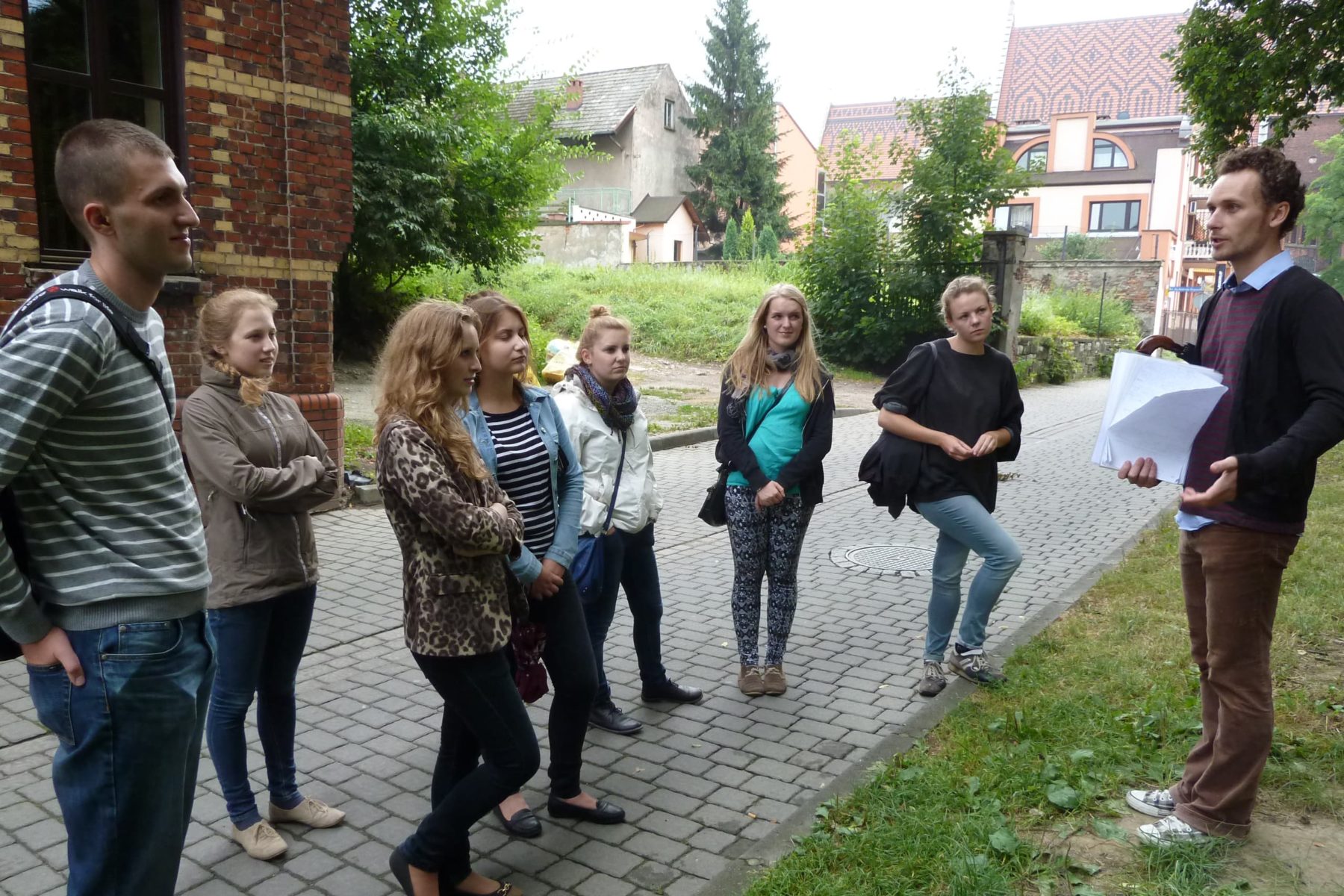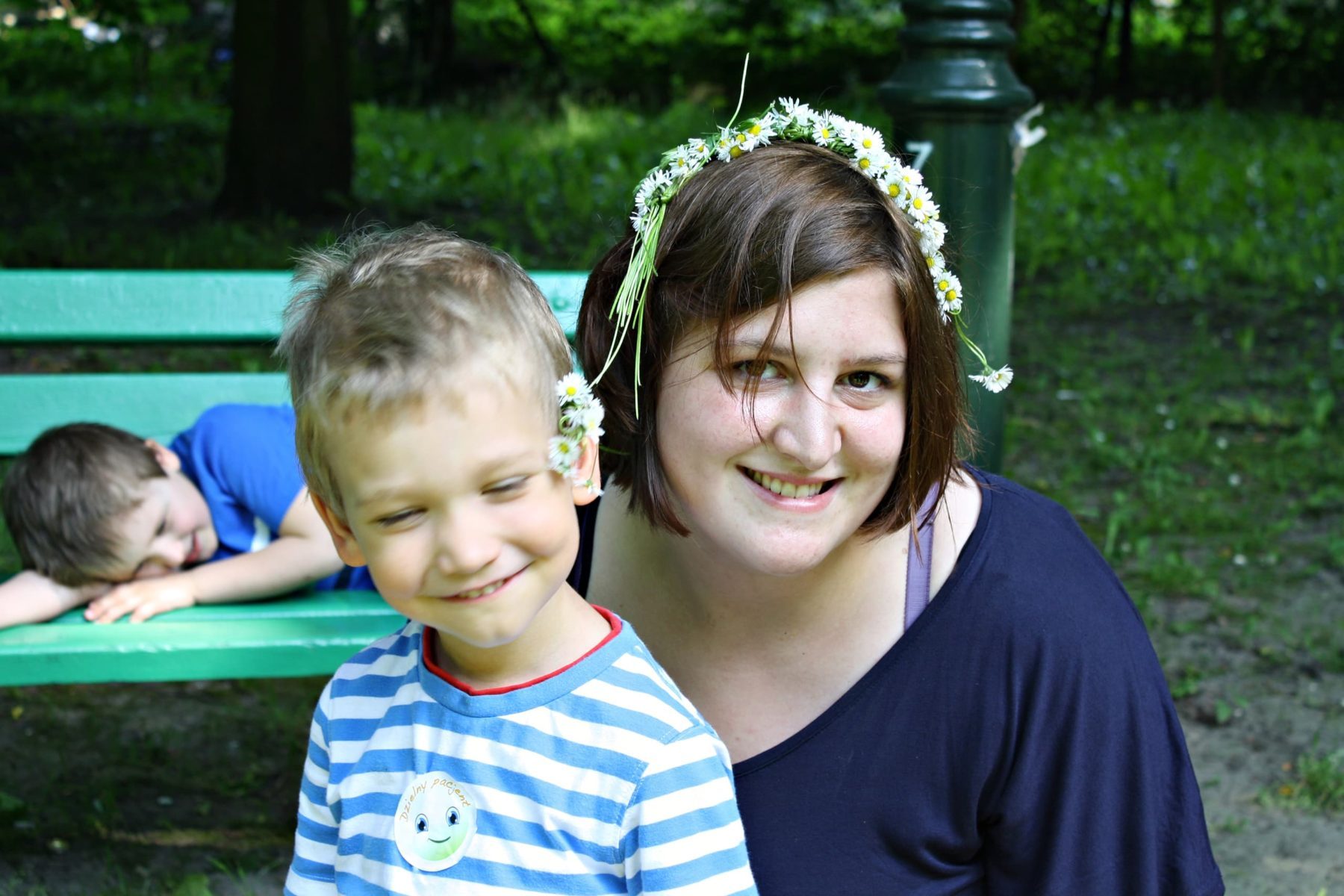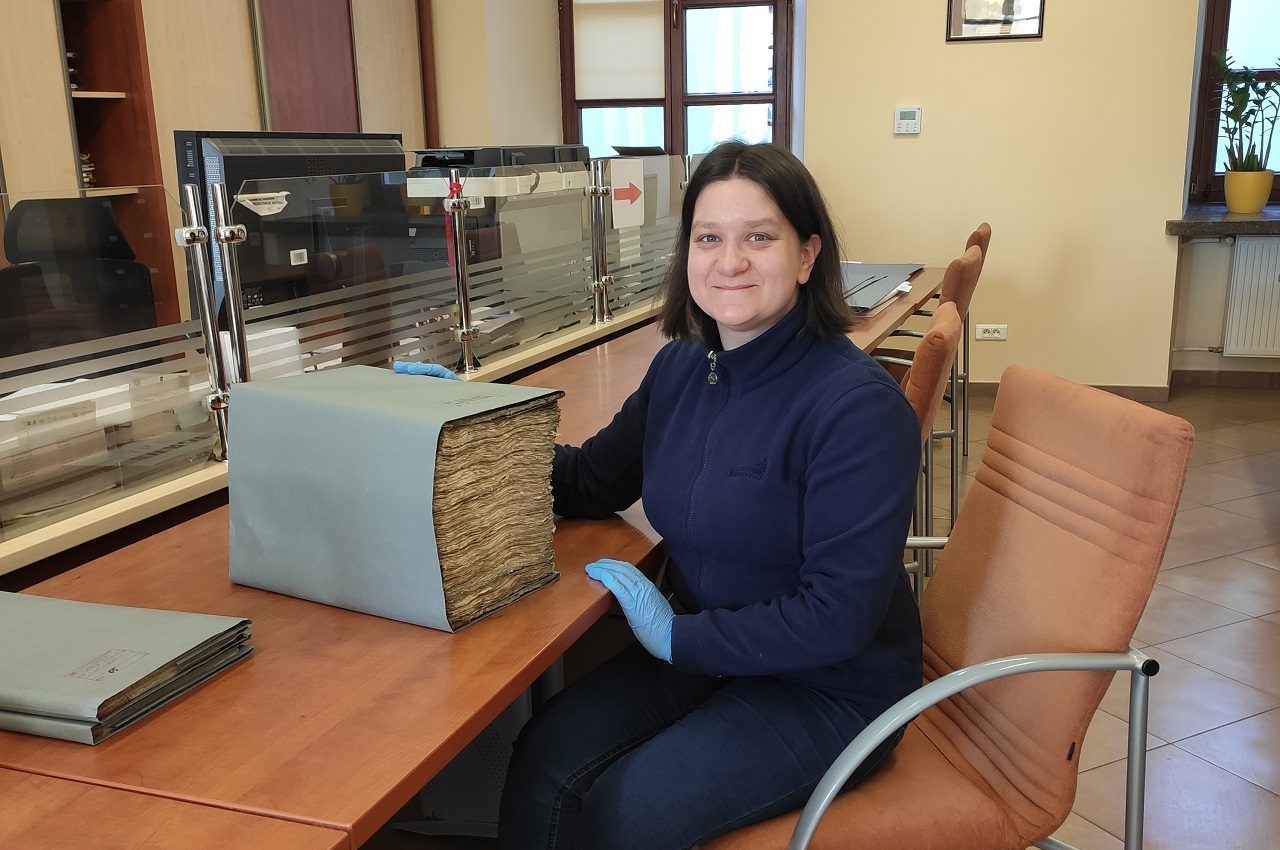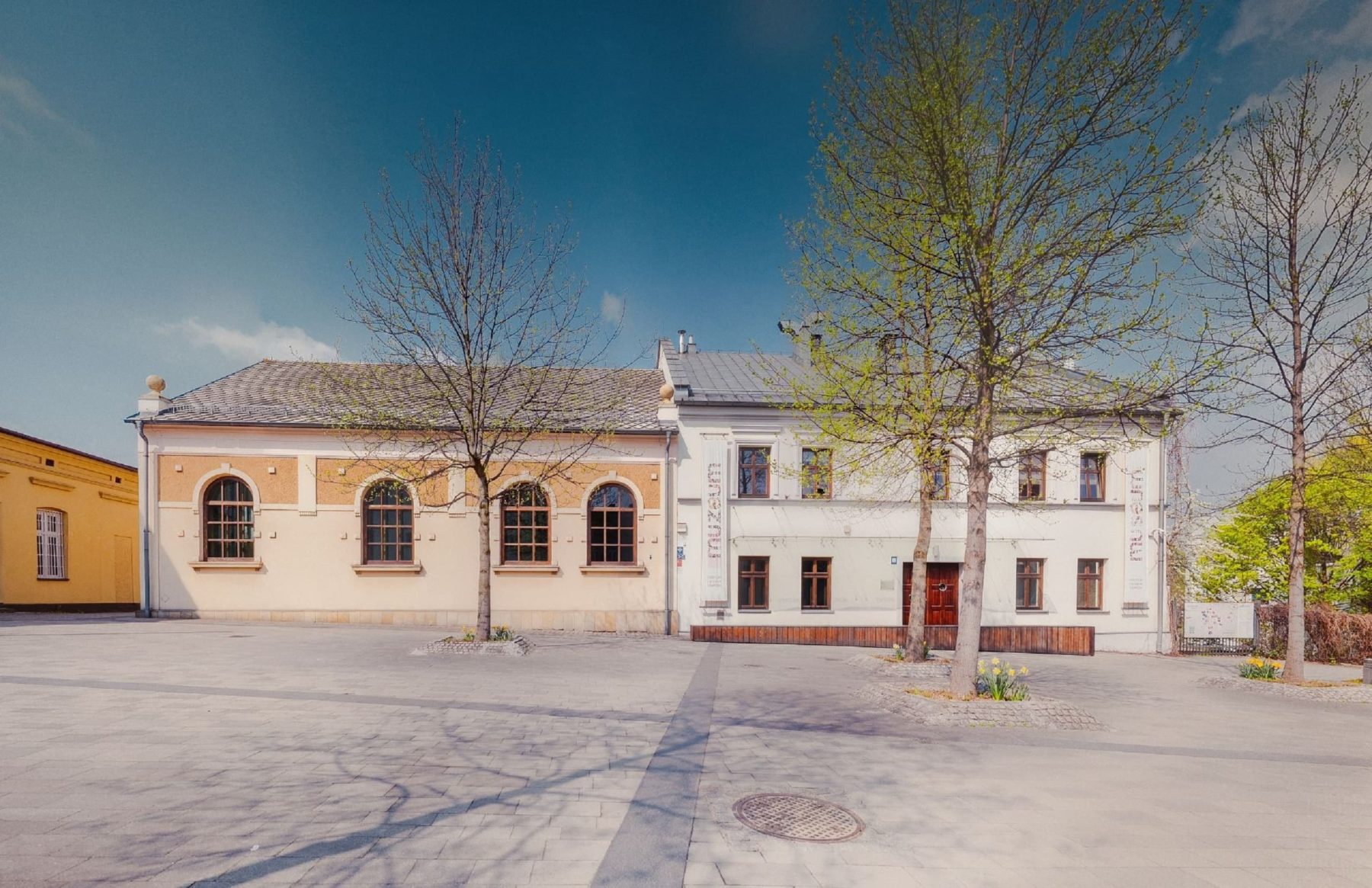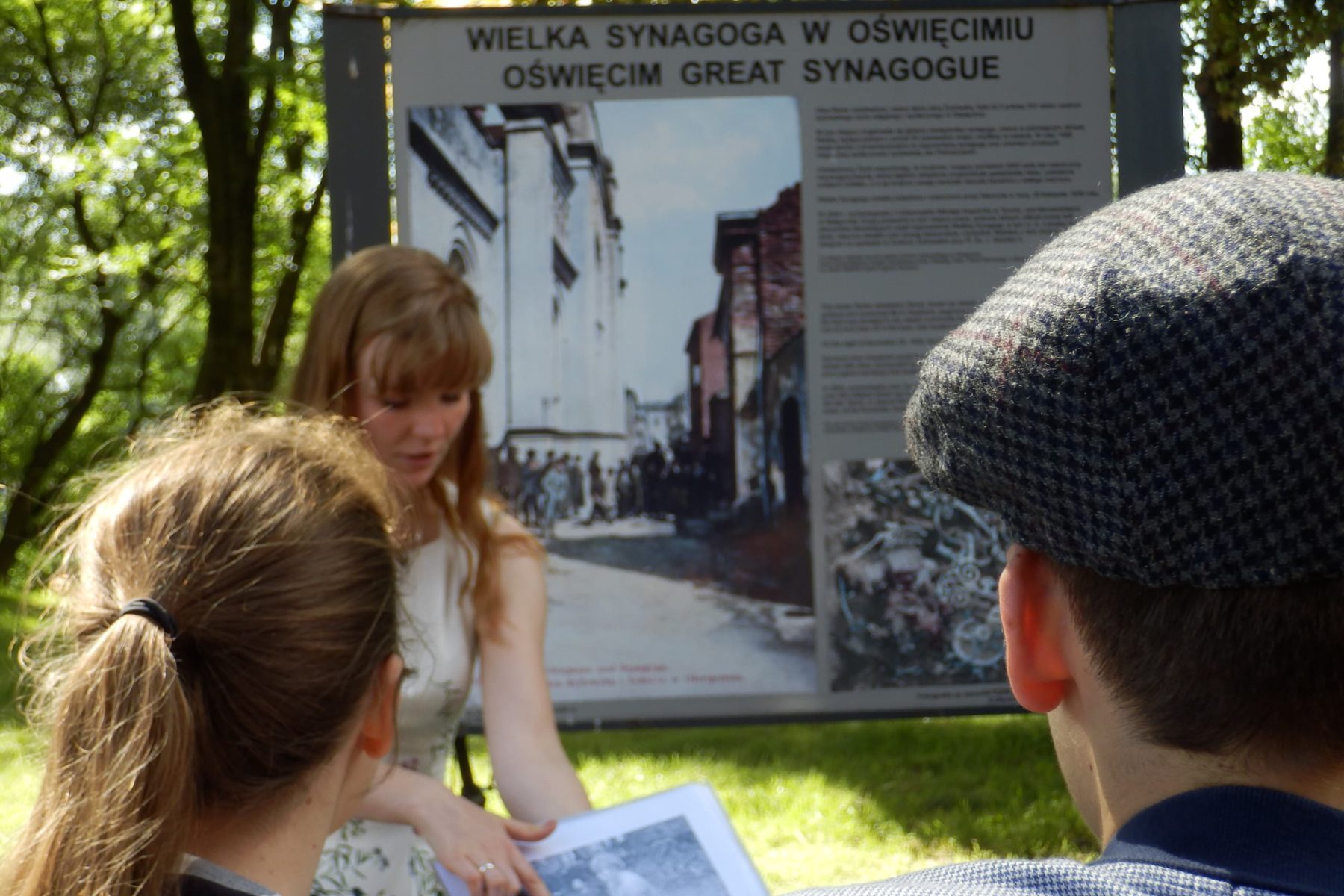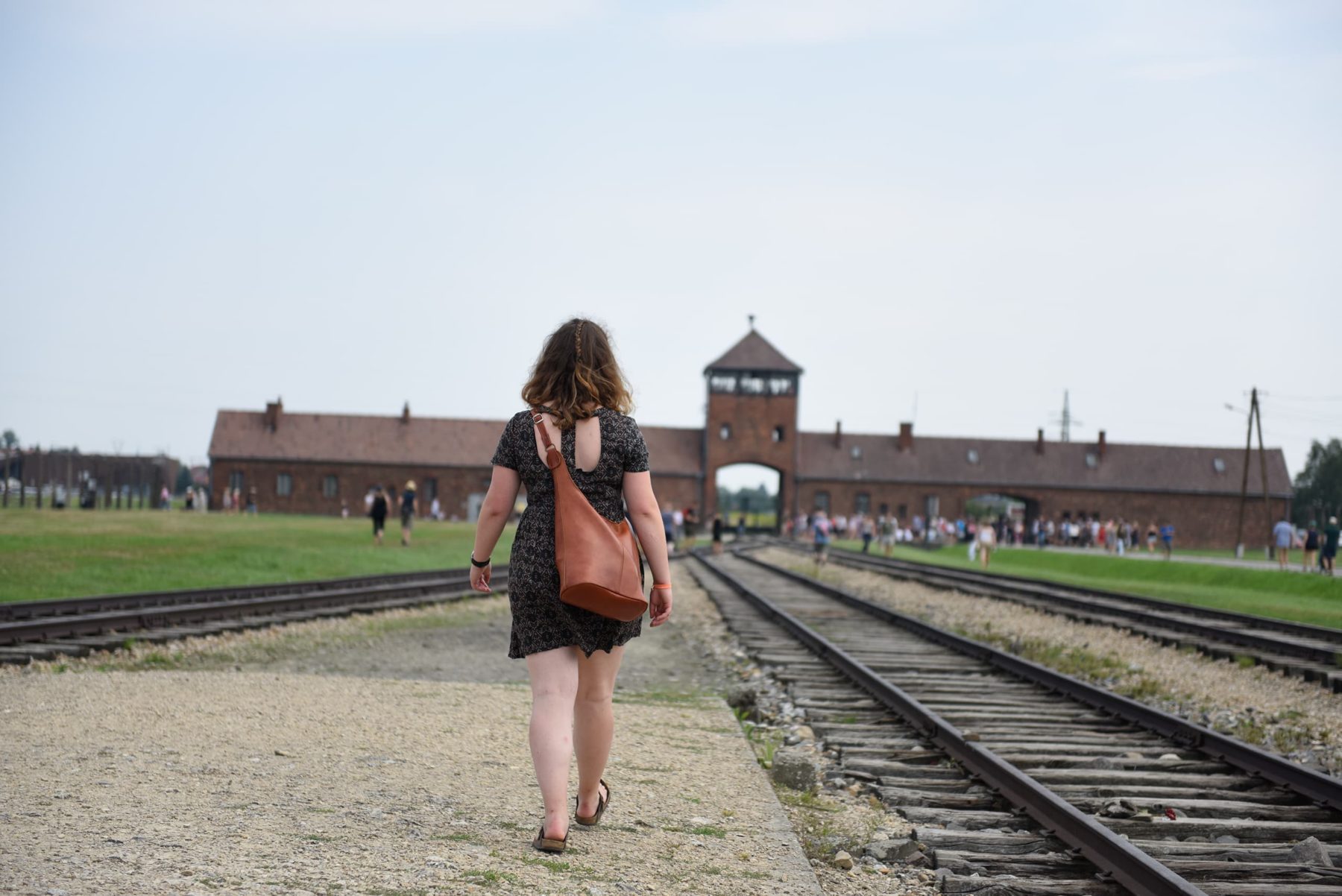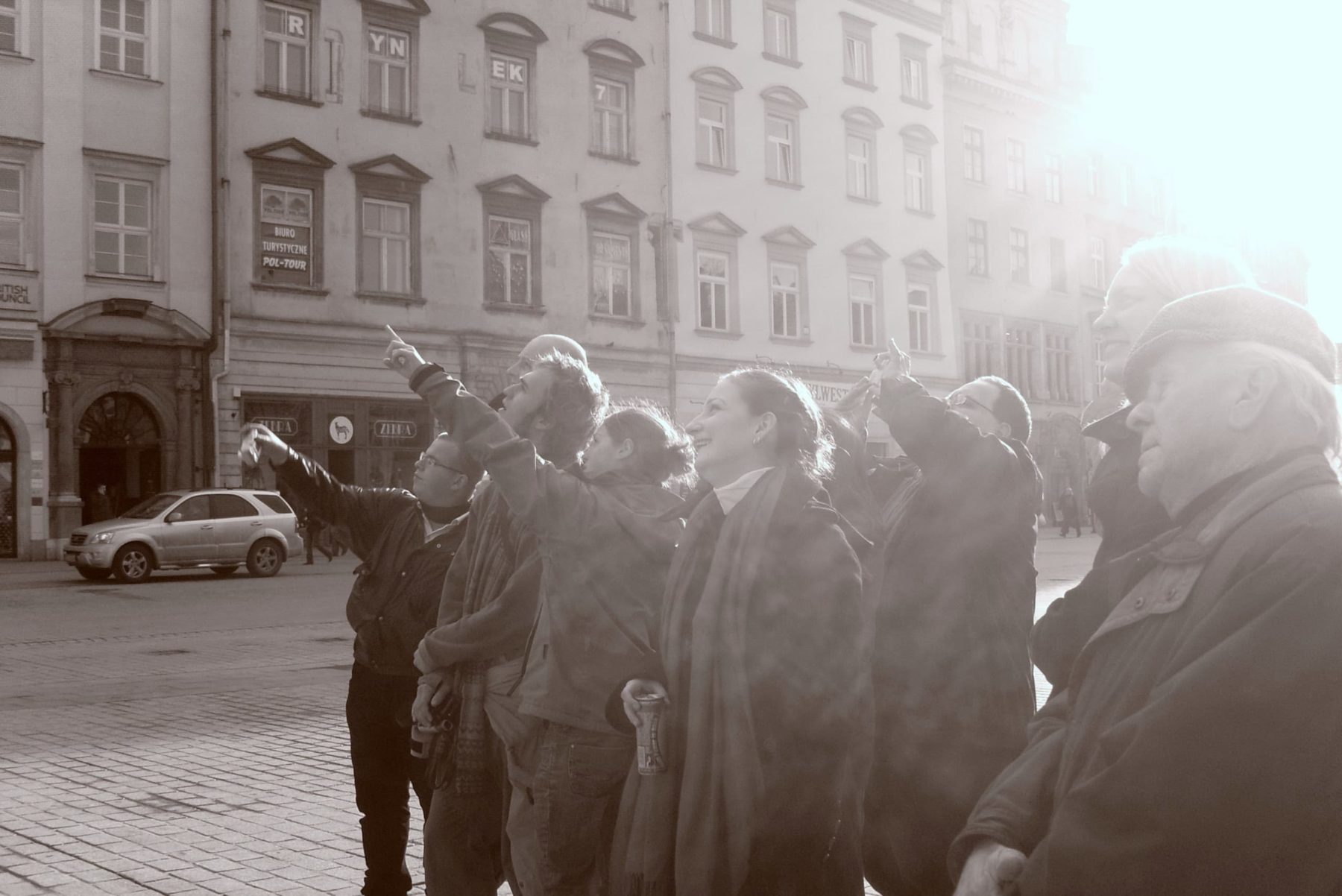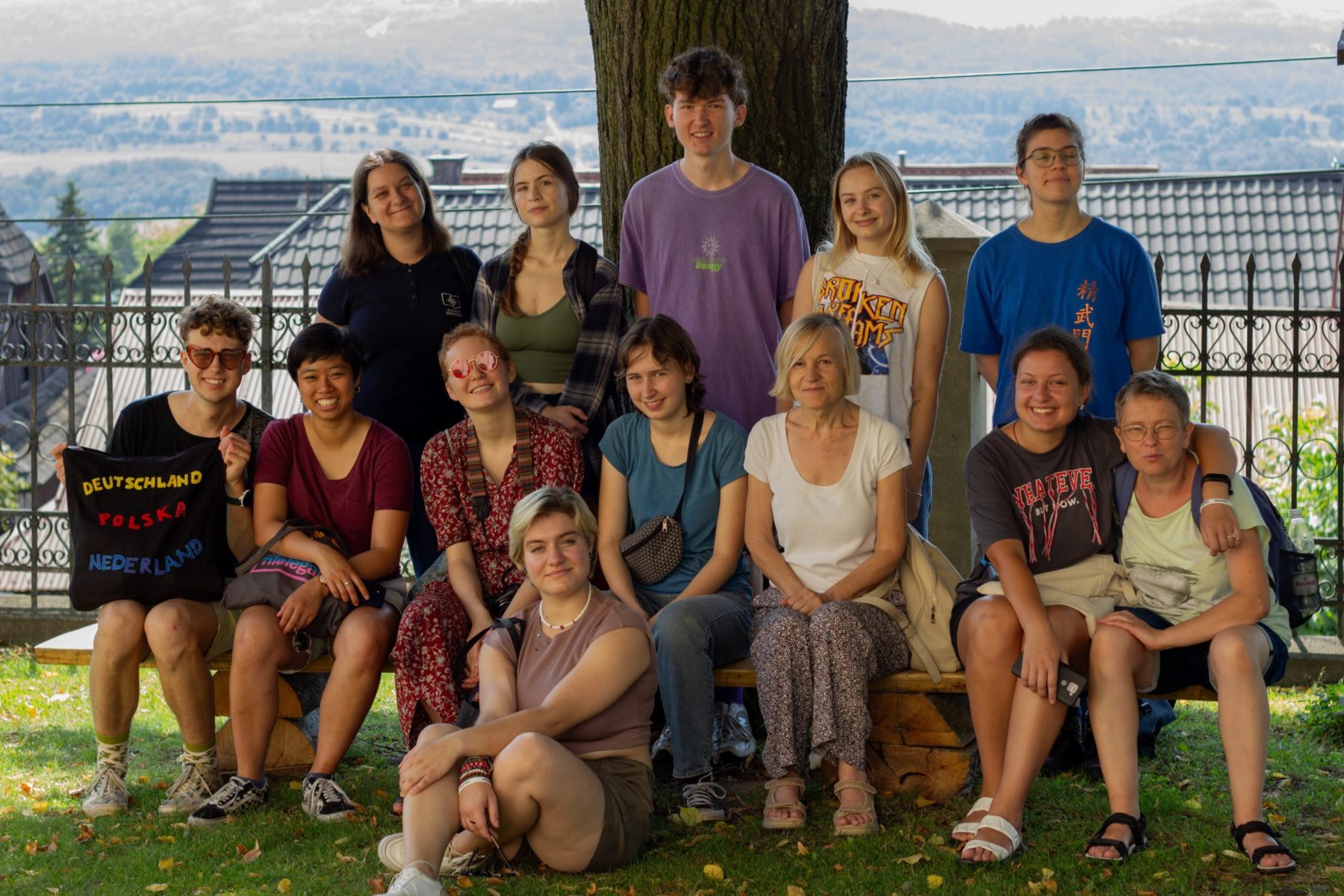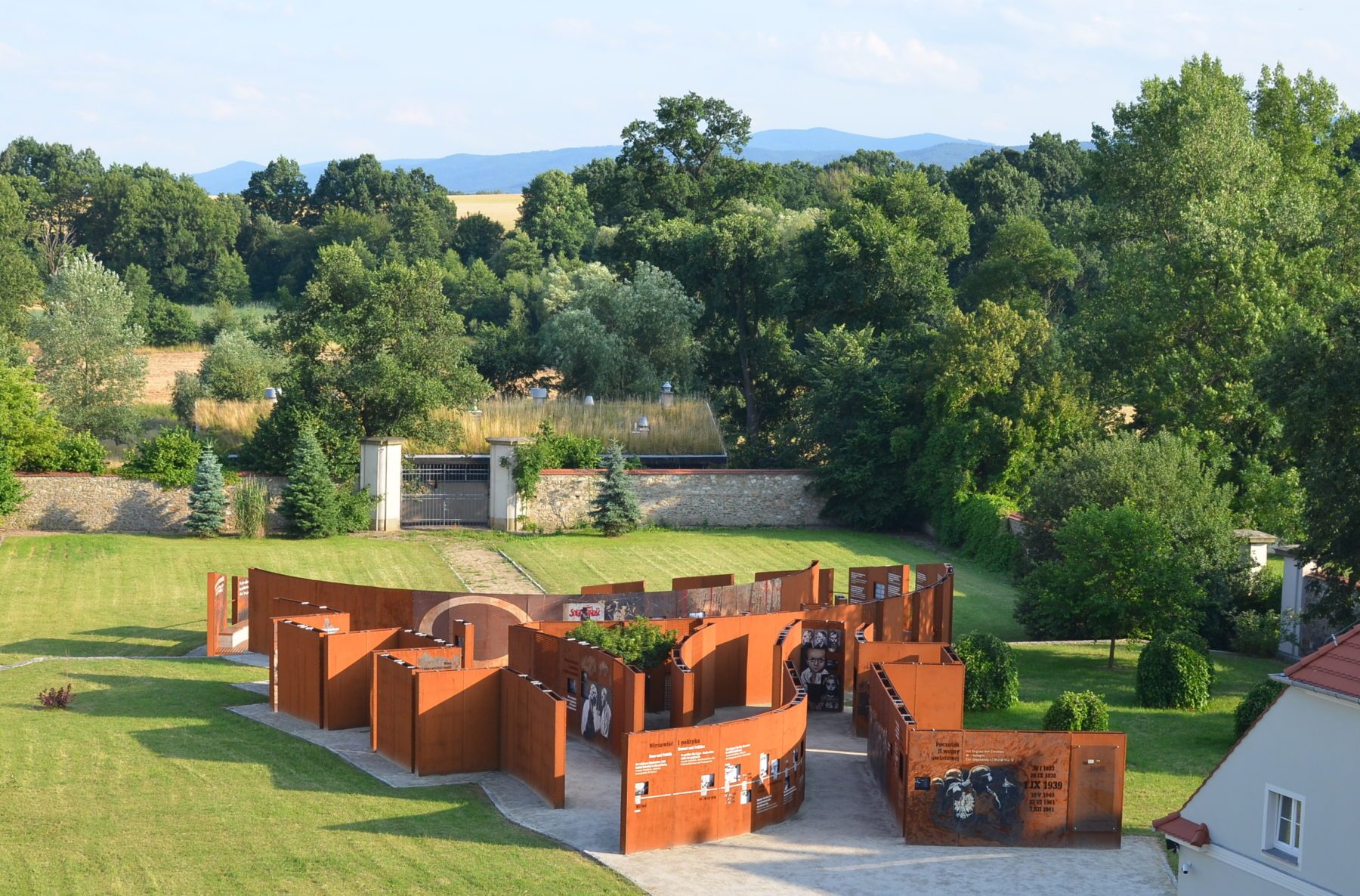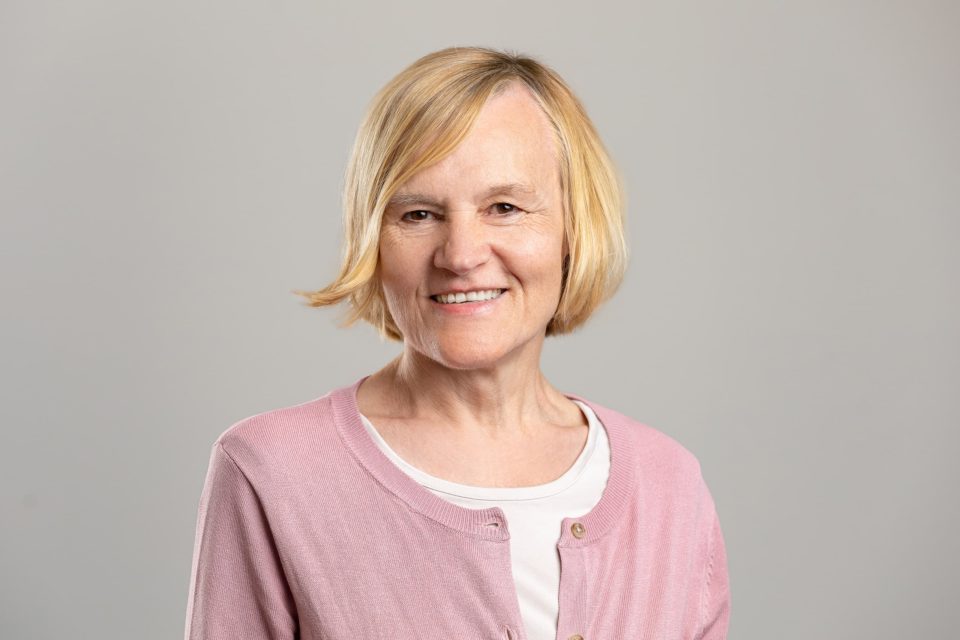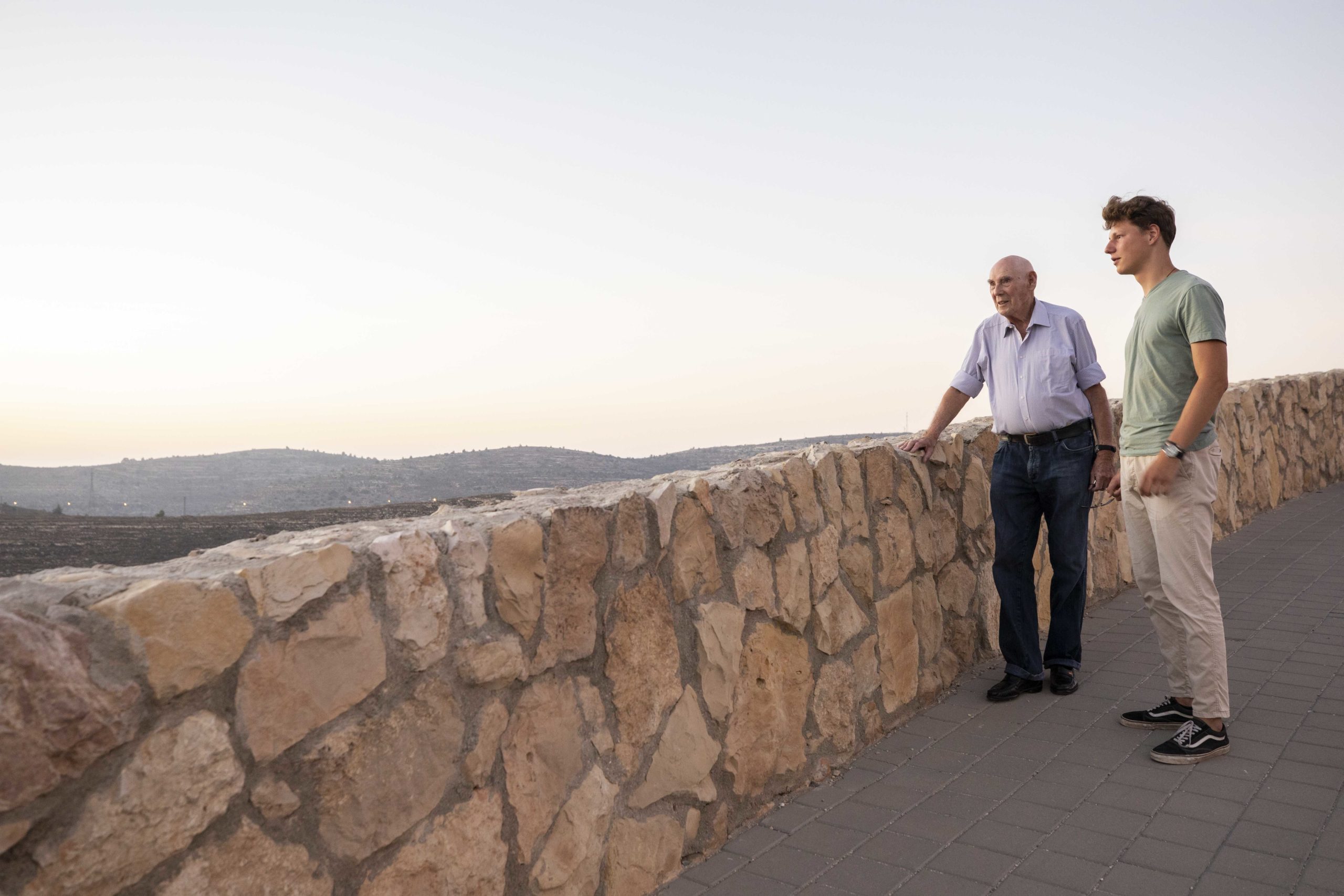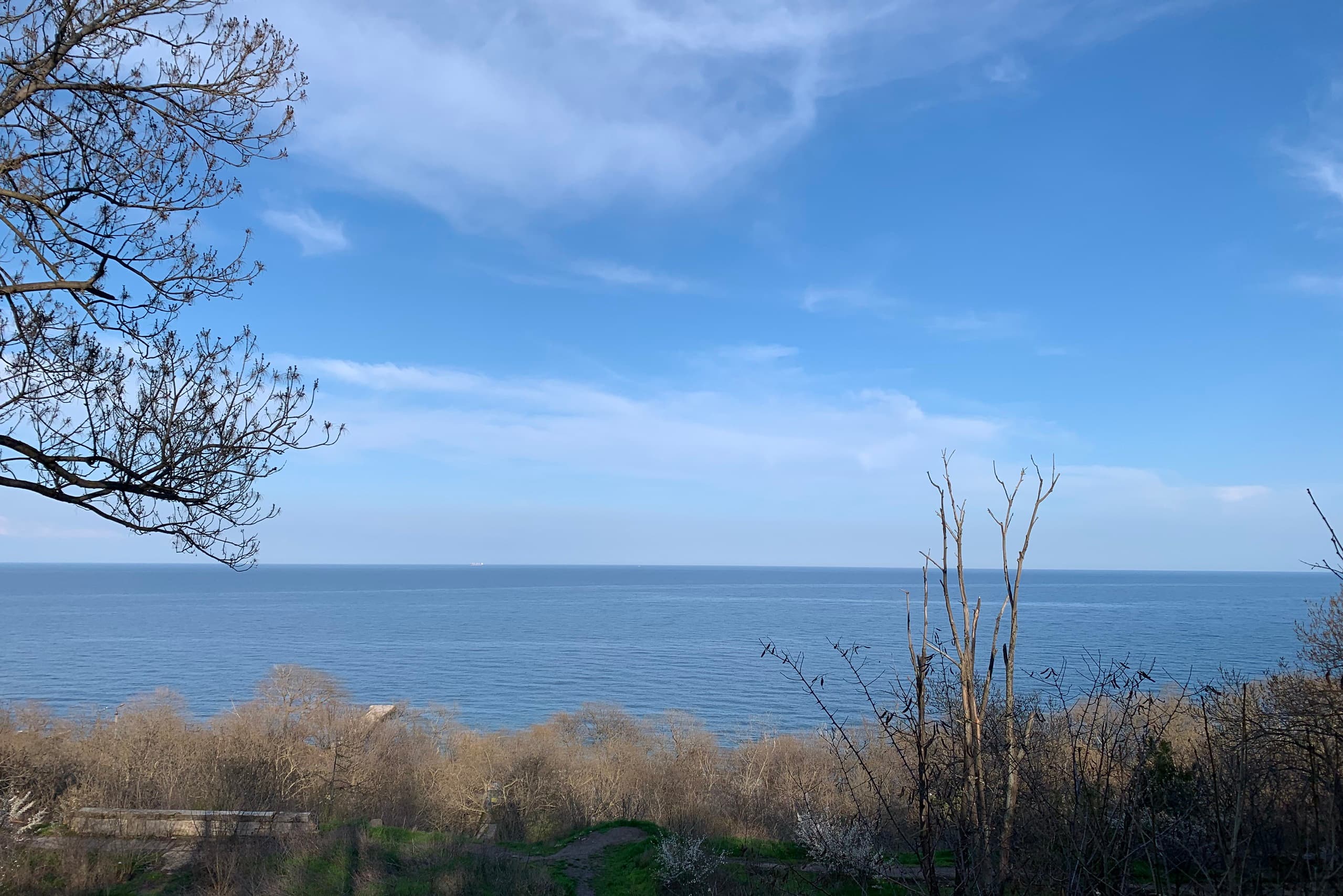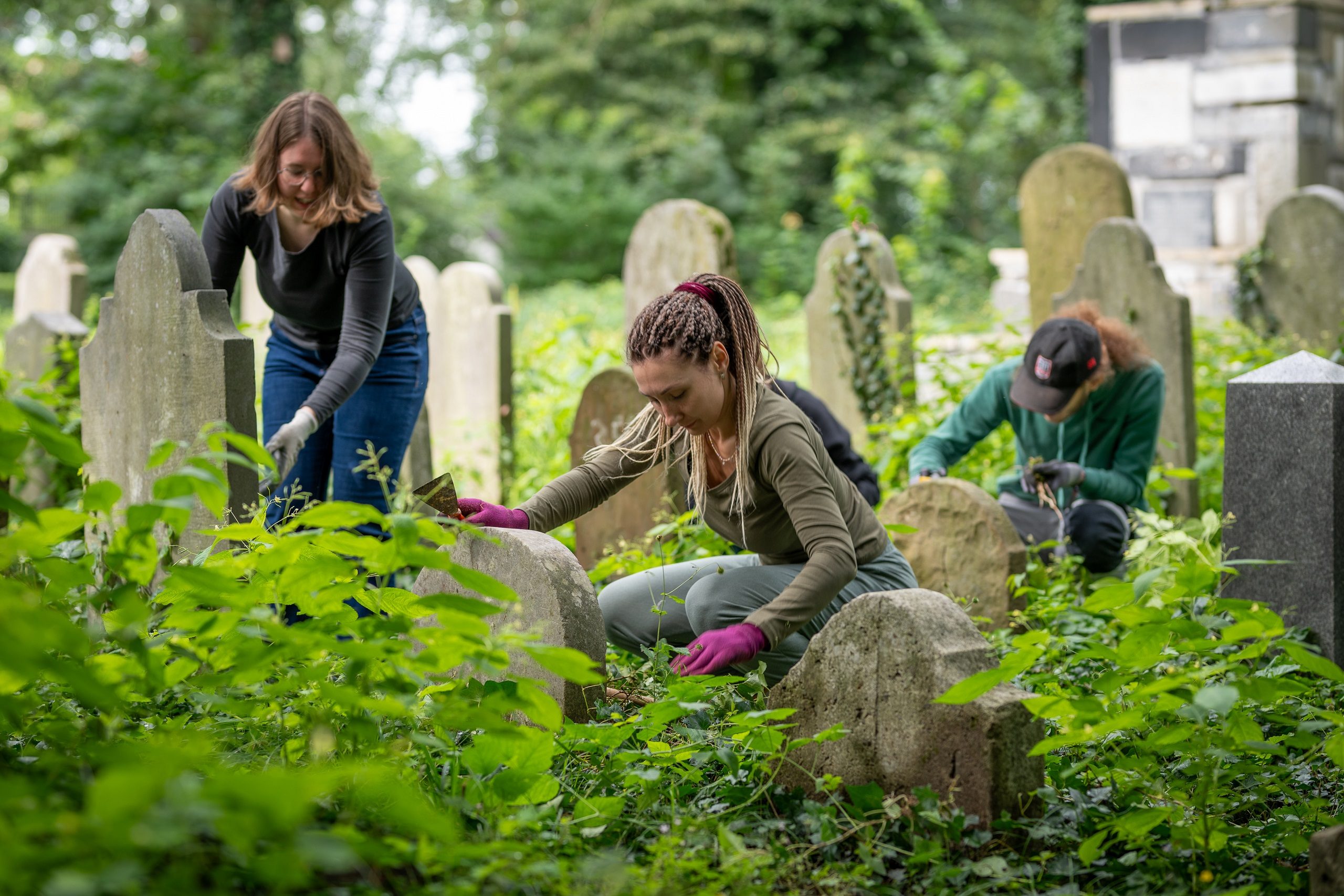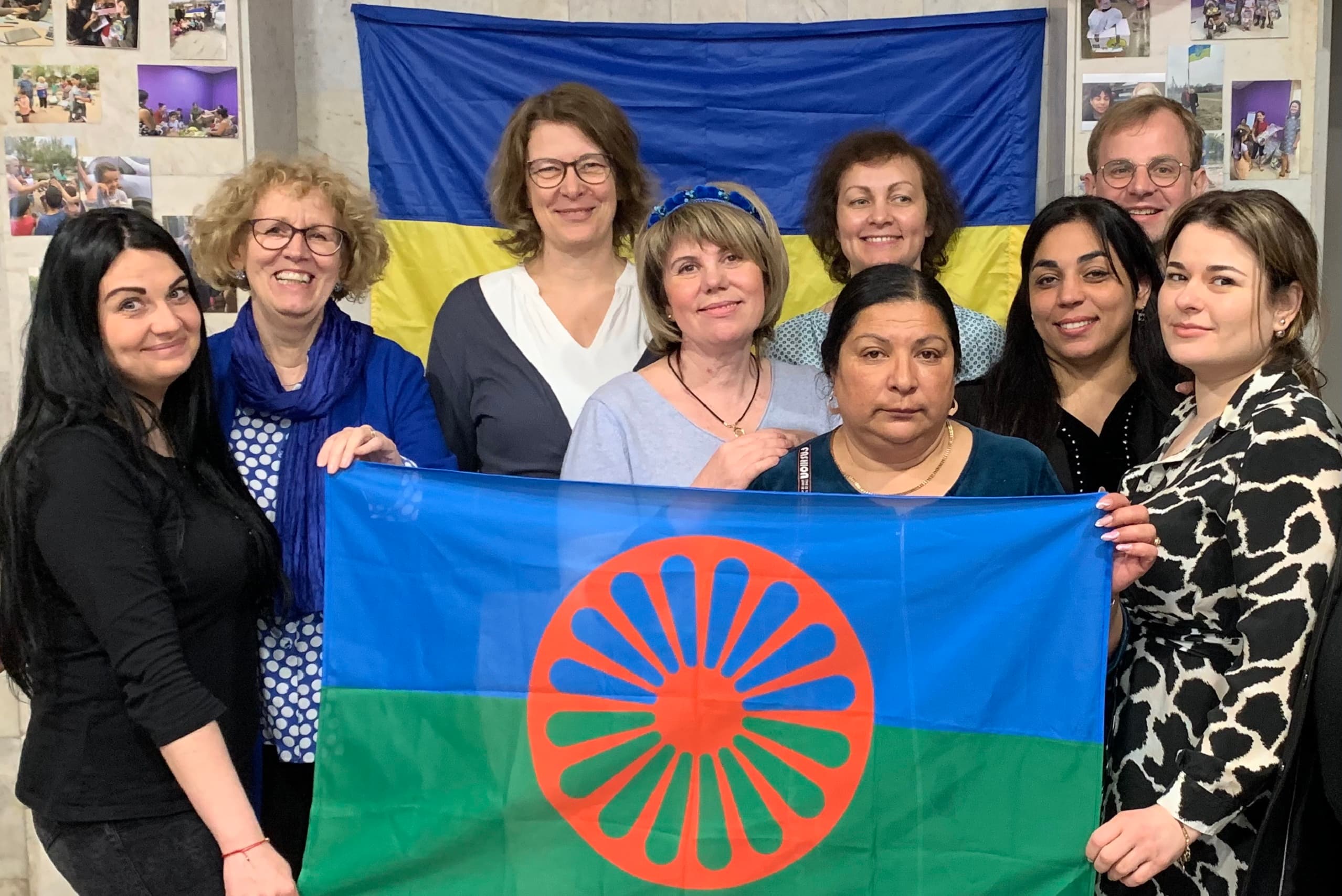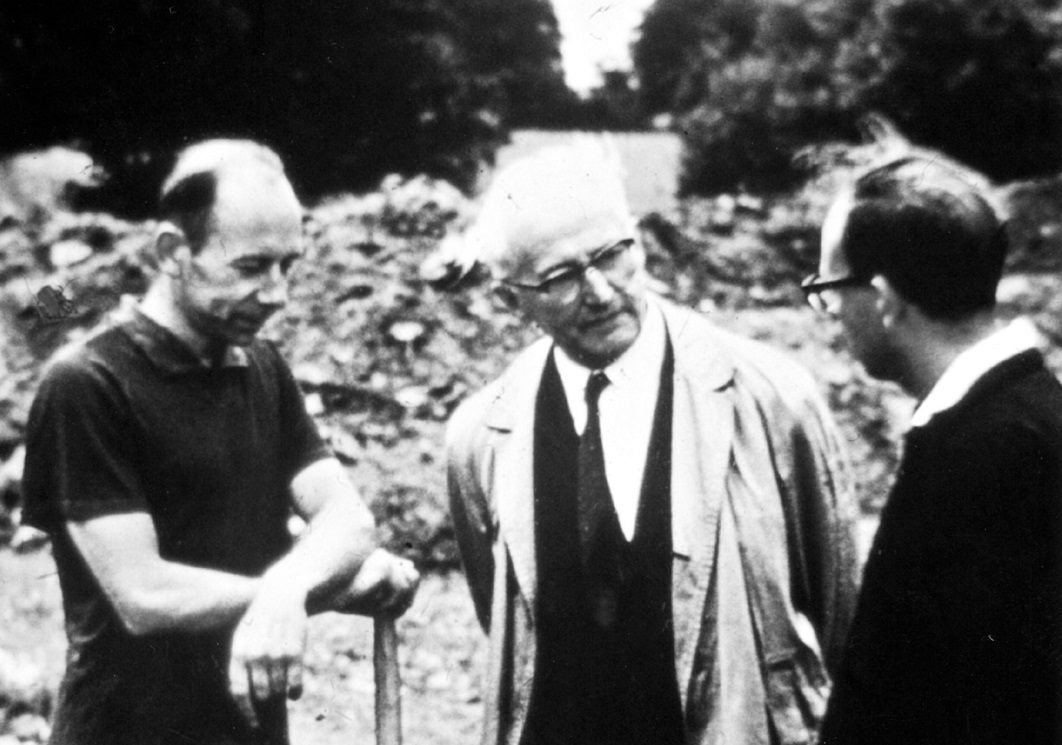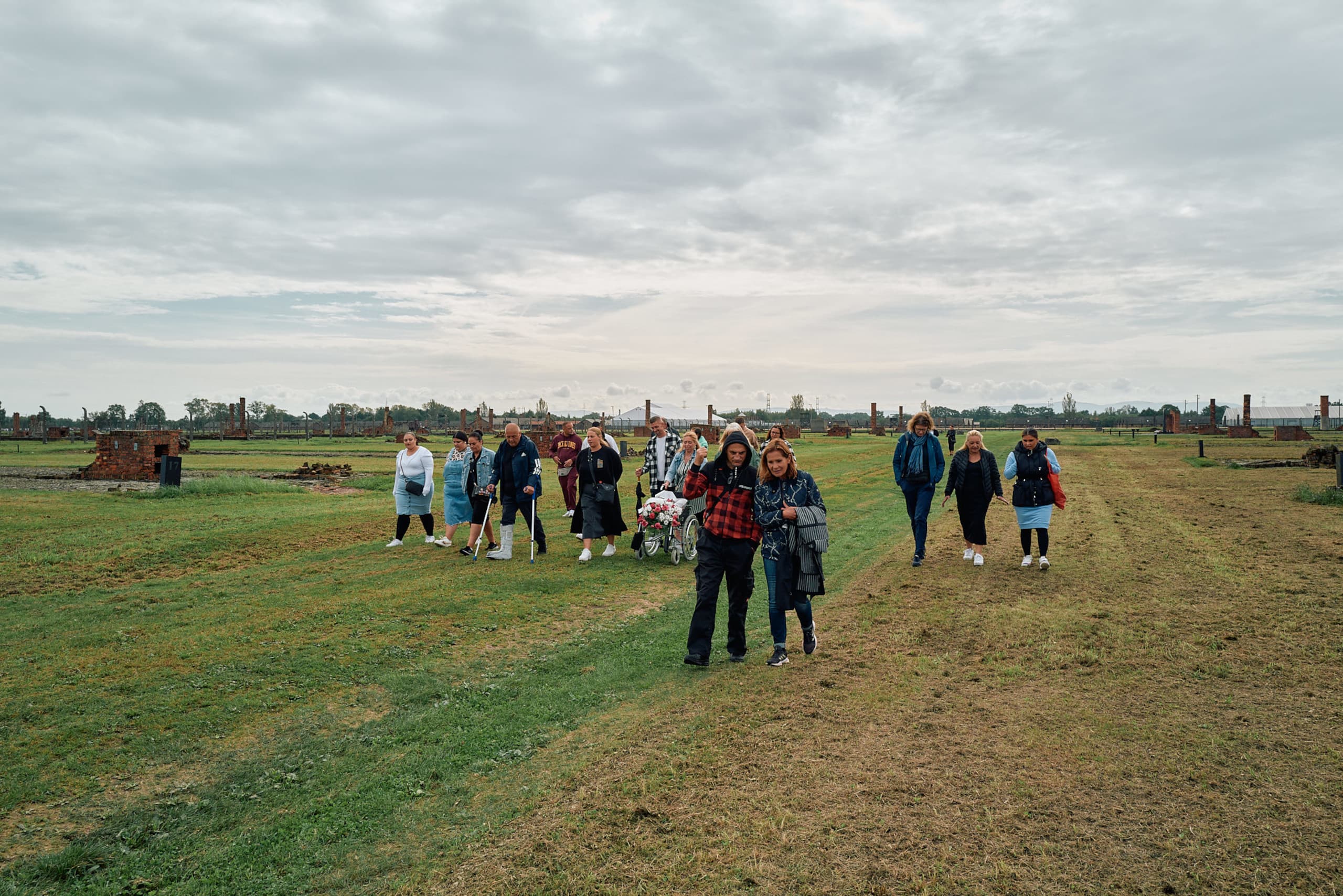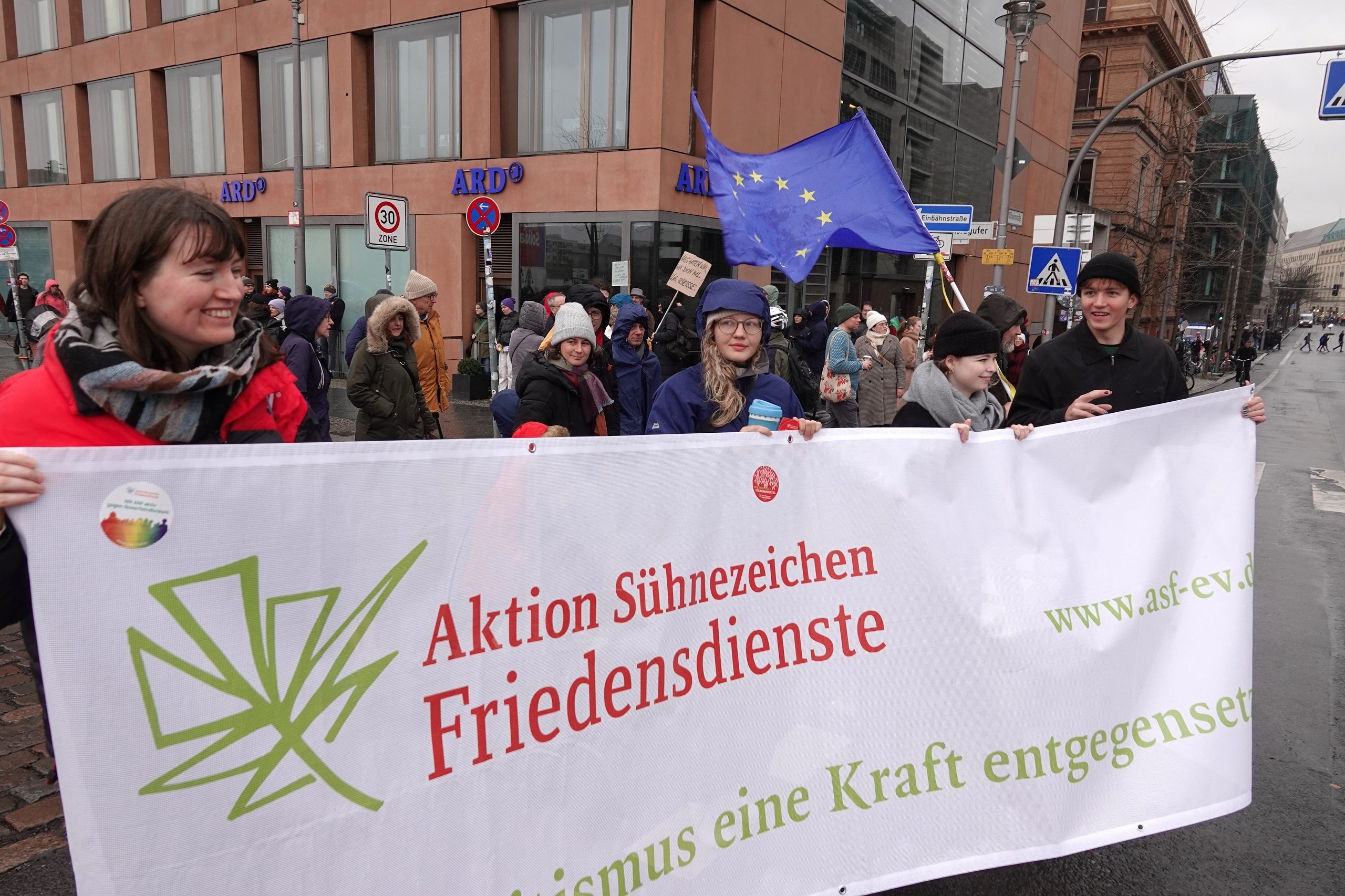Volunteer service in Poland – applicants from Ukraine
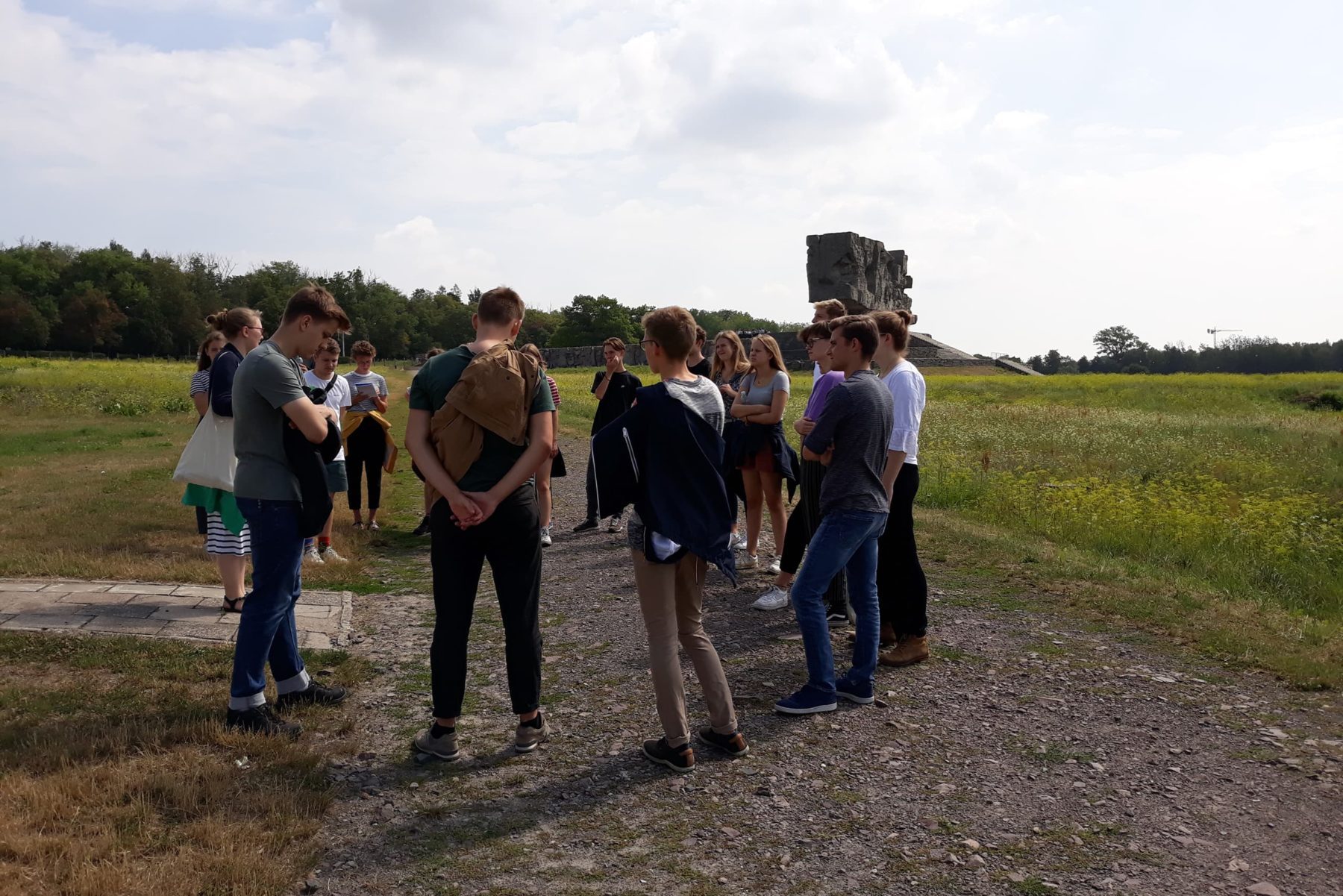
You want to work for remembrance, diversity and solidarity and gain experience abroad? #withASF you can volunteer in Poland for a year. Around 16 volunteers from Ukraine and Germany do their service together in various cities throughout the country: they work in memorial sites, museums and cultural centres. They accompany survivors of Nazi persecution, support people with disabilities or get involved in children’s and youth facilities.
This page informs Ukrainian applicants about a voluntary service in Poland. You can submit your application for a voluntary service starting on 1st September 2024 on an ongoing basis. The earlier you apply, the better.
Applicants from Germany can find information about a voluntary year in Poland here.
What about a volunteer service? And why #mitASF?
The focus of a volunteer service is your commitment to the local people. #withASF, you get involved with a Polish partner organization for a year – for example, you accompany people who were persecuted by the Nazis or people with disabilities. You give tours at a memorial site, you do cultural work in a community center or you help preparing an exhibition in a museum.
In a volunteer service, you are involved with a ASF partner organisation for one year. You have a permanent volunteer position where you work full-time for five days a week.
Volunteer service is about more than just work: together with your fellow volunteers in the German-Ukrainian group, you will attend seminars to get to know your host country, its people, language and history. Together, you will exchange your experiences in four ASF seminars and prepare the service and life abroad at the beginning of the volunteer year.
ASF was founded after the Second World War and the Shoah as a sign of repentance and concrete solidarity with the people and countries that suffered from the unprecedented crimes of National Socialism. Poland was invaded by Nazi Germany, its people suffered the most serious crimes, millions of people were killed here in the German extermination camps of the Shoah.
ASF remembers the many Nazi persecutees in the country and promotes German-Polish-Ukrainian encounters within the framework of the volunteer programme in Poland. ASF opposes current forms of anti-Semitism, racism, queer hostility and exclusion of minorities.
ASF accompanies and supports you before and during your year abroad. There is a permanent ASF contact person in the country. We cooperate closely with our partner organisations, with most of them for many years. You will also have a permanent contact person at your workplace. Good preparation and support throughout the year and diverse seminars are very important to us and are the hallmarks of an ASF volunteer service. Therefore: #mitASF (with ASF).
We are looking for volunteers who are interested in politics and history and who work with heart and mind in our partner organisations.
What do volunteers do?
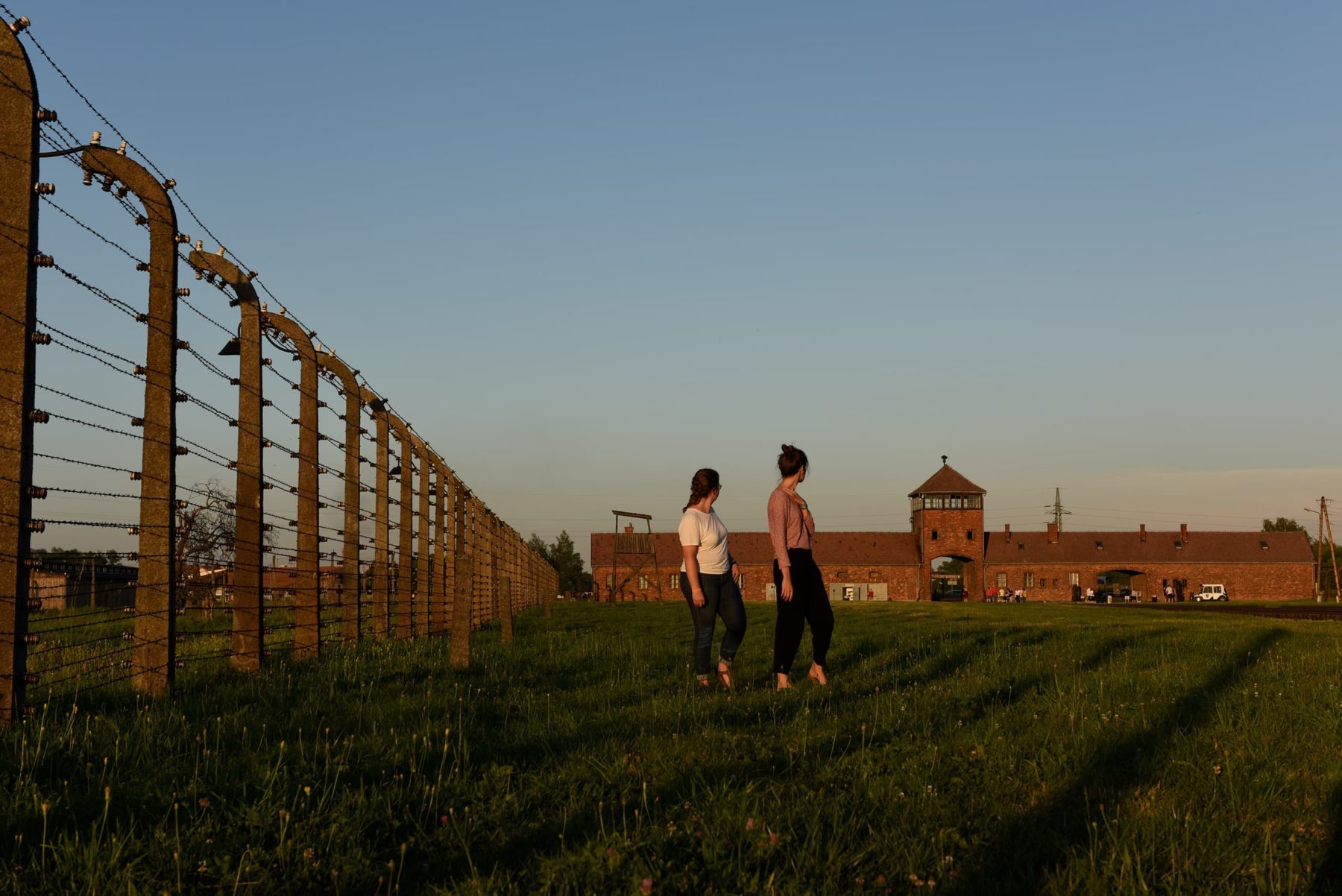
Our volunteer positions in this area are in memorials and museums, in archives and at local educational institutions. Your focus is either on educational work or on archival work. In any case, there is a large amount of office work.
Almost all posts in this area revolve around the remembrance of German Nazi crimes and preserving the memories of the victims. You contribute to remembering the victims and those who suffered from the Nazi crimes and dealing with the perpetrator structures. You reflect on continuities of group-related misanthropy, anti-semitism and racism that extend to our present day.
For example, you give tours for school classes at a memorial site. You help design seminars and workshops or you assist in research tasks. You help design a new exhibition in a museum or organize a memorial service. In research institutions, you scan valuable old documents and catalog archives in a database.
In many of these places you will meet survivors of Nazi persecution or their descendants. You will learn touching stories about survival during persecution and their lifes after liberation.
For the work in this field of activity, you need interest in historical topics, perseverance and patience. Most of the work takes place in the office on the computer. To accompany visitors and groups, you should be interested in educational work and be able to speak in front of groups. It’s completely different in archives and research centers: here you need a lot of calm, patience and fun working systematically in databases or on the scanner.
Some of our historical education positions are located at the sites of former concentration or extermination camps. The daily involvement and confrontation with these places can be psychologically stressful. Our partner organisations and our own staff will provide you with strategies to get a distance and recreation after work.
Are you interested in socio-political issues and intercultural relations? Then a position in this area could be exciting for you.
Our volunteer positions belong to educational associations or political initiatives. They lobby for marginalized groups or research human rights violations. They offer a wide range of educational and encounter programs, e.g. training to strengthen democracy.
In this field you mainly work on the computer in the office. You help with research and the compilation and publication of information, e.g. about right-wing extremism, racism or anti-semitism. You will be involved in translations or in maintaining social media and websites. You support the preparation and implementation of educational workshops and seminars or you do campaigning, e.g. manage information stands at events.
For these positions, you should enjoy daily office work on the computer. You need a lot of independence and initiative and, depending on the position, a desire for educational work with groups.
In this field of activity, you accompany people with disabilities in their participation in social life and on their daily ways and activities. You get to know diverse realities of life and people with great courage and joy of life. You are committed to ensuring that they are perceived and respected as equal human beings.
You support people with disabilities, for example in their apartments, in residential facilities or in day care facilities. You join in with their leisure activities at home or at their work place. You offer leisure activities for groups, e.g. music, sports or games. You go on excursions or excursions together.
You support people with disabilities, for example in their apartments, in residential facilities or in day care facilities. You join in with their leisure activities at home or at their work place. You offer leisure activities for groups, e.g. music, sports or games. You go on excursions or excursions together.
People with special needs can be physically or mentally disabled by their environment. Some people have their own language and culture, e.g. deaf people. People with disabilities are still disadvantaged and discriminated against and struggle for their participation. Most of our positions involve social contacts and communication. Sometimes volunteers also provide assistance with simple nursing tasks.
Some of these volunteer positions have a church background, but are open to those interested regardless of their denomination or faith.
For these tasks you need enthusiasm and humor, patience and flexibility. Creative or musical skills are also very welcome. You go on an exciting journey and learn to see the world through different eyes.
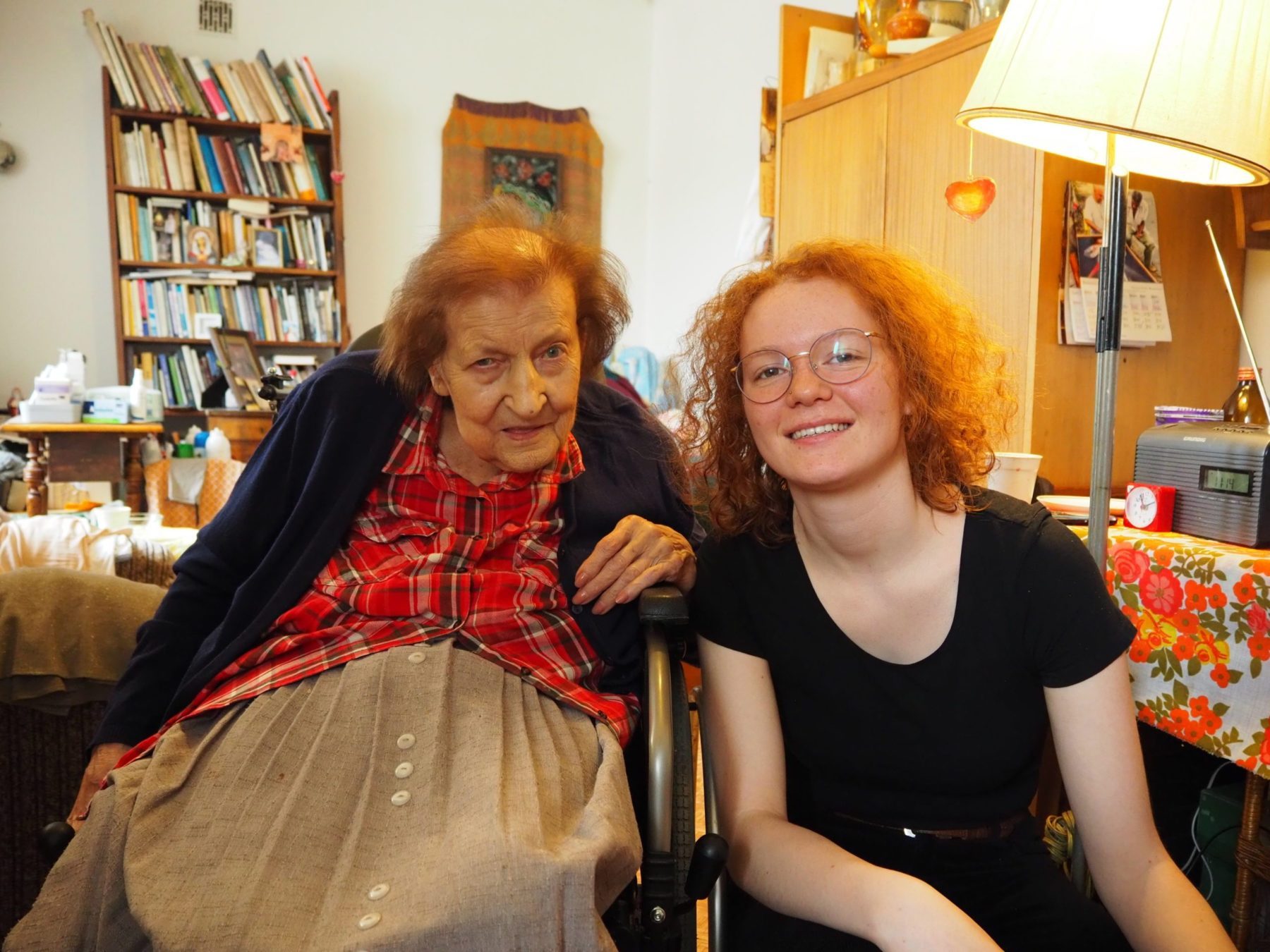
In this field of activity you support elderly people. Most of them are survivors of National Socialist persecution and their children: Jews, former forced laborers, and those who were politically persecuted.
You visit old people in their homes or retirement homes. For example, you help them with housework, go shopping with them or accompany them on walks. This activity is about social contacts and communication.
For these tasks you need patience and sensitivity, but also creative and communication skills. You may learn exciting and touching life stories and make warm-hearted friends.
Volunteer positions
There are about 15 volunteer positions in various Polish cities. Often several volunteers live together in one city. Volunteers engage in one or sometimes two permanent volunteer positions. The following volunteer positions are available to Ukrainian volunteers.
International Youth Meeting Center Auschwitz – Oświęcim
Internationale Jugendbegegnungsstätte Auschwitz / Międzynarodowy Dom Spotkań Młodzieży w Oświęcimiu.
Organizational support of the pedagogical department in the accompaniment of study groups, office work.
Jewish Center Auschwitz – Oświęcim
Centrum Żydowskie w Oświęcimiu.
Organizational support of the pedagogical department in accompanying study groups, office work. Guided tours in the center. Supporting the cafeteria team.
Maltańskie Centrum Pomocy – Kraków
Malteser assistance center for children with disabilities and their families. Assistance for children with autism and other impairments. Support for the team and the families of the children during the day, rehabilitation activities and support at home.
Pro vita et Spe (Maximilian-Kolbe-Organisation) – Kraków
Support for the elderly, household help. This volunteer position is combined with work at the Galicia Jewish Museum / Żydowskie Muzeum Galicja.
Kreisau Foundation for Mutual Understanding in Europe – Krzyżowa
Volunteers in Kreisau continue the legacy of the resistance group Kreisau Circle and are active for European understanding. The memorial and the academy create international programs of political and historical education. Volunteers support the remembrance, education and cultural activites.
Grodzka Gate – NN Theatre Centre – Lublin
Association for historical-political education. Teatr NN is a cultural institution providing educational services on remembrance and origin. The centre provides knowledge about the historical-cultural roots of Polish-Jewish life in Lublin and the region. Supporting the Teatr N.N. office in the preparation of events, exhibitions and seminars.
The Union of Jewish Communities in Poland / Związek Gmin Wyznaniowych Żydowskich w RP – Warszawa
Visiting services to the elderly, household help. Collaboration in the social department and in the municipal kindergarten.
Galicia Jewish Museum / Żydowskie Muzeum Galicja – Kraków
Reception service, accompany visitors, support of the museum office and the café incidental office work, e.g. proofreading and mailings. This volunteer position is combined with Pro vita et Spe (Maximilian-Kolbe-Organisation – support for older people).
Requirements
Volunteering #withASF is open to everyone. You only have to fulfil a few conditions beforehand. We will be happy to advise you on this. Does everything fit? Then apply here!
- How old do I have to be to do voluntary service?
In order to be able to do volunteer service with ASF, you must be of age, i.e. 18 years old, at the latest by the start of your service (usually on 1 September). Unfortunately, it is not possible to start a volunteer service #withASF as a minor. There is no upper age limit. However, some of the volunteer positions are only open to people who are 30 years old or younger at the beginning of their service. If you have any questions, we will be happy to advise you. - Ukrainian and German volunteers
Only people from these two countries can participate in the Ukrainian-German volunteer programme. All applicants from Germany must have a German registration address. Ukrainian applicants can come from Ukraine, but also from other countries, for example if they fled to Poland or Germany because of the Russian war of aggression. We are aware of the difficulties in this situation and support Ukrainian applications to our volunteer programmes. Do you have any questions? Then please contact our country director Urszula Sieńczak.
Ukrainians can also participate in the international volunteer programme in Germany. - Do I need a specific school-leaving qualification or previous experience?
You don’t need a specific school-leaving or vocational qualification. We don’t expect trained professionals, even if certain skills are necessary for some volunteer positions. Are you open-minded and outgoing and do you want to get to know new ways of life and cultures? Then you have a lot to bring to a volunteer service. It is important that you are respectful of foreign views and ways of life and that you get engaged yourself in the daily work of our partner organisations.
- Do I need any specific language skills?
You do not need to have any knowledge of Polish to volunteer in Poland. However, it is important that you start learning the language as early as possible before your volunteer service. ASF supports you in your language training, which you should start before your voluntary service. The common language at ASF seminars in this program is English. - Is voluntary service also possible for people with disabilities?
Volunteer service with ASF should be open to everyone who wants to get involved. We know that this claim can reach its limits in practice. But we try, as far as we can, to find solutions and offers also for people with special needs, with disabilities or assistance requirements. For example, if you are a wheelchair user, deaf or otherwise dependent on assistance, we will be happy to advise you and work with you to find ways to get involved #withASF
What does ASF offer?
ASF attaches great importance to good on-site support and to an exciting seminar programme for the volunteers. ASF provides travel, accommodation, pocket money and insurance.
How does ASF support me?
Engagement in networks
With ASF you can get involved socially, politically and historically, gain valuable experience abroad and meet many wonderful and interesting people.
In the Ukrainian-German volunteer programme in Poland, you will be part of a lively group of committed and mostly young people who live all over the country. You will have a lot of contact with them during your volunteer year.
On-site support by ASF staff
We accompany and support you in the preparation and implementation of your volunteer service with a permanent contact person in Poland: the Country Director. She will support you with your application and later during the volunteer year with practical questions or problems.
Exciting seminars
All ASF volunteers take part in accompanying seminars during their service. In our seminars, you can exchange information and advice with other volunteers about your experiences in Germany and your position. In addition, you will deal with historical, political and social issues. Central to this are questions about the relations between Germany and the countries you come from, and especially the question of the effects and consequences of the National Socialist crimes up to the present day. Another focus in our seminars is biographical work, i.e. researching and comprehending of different life stories. You can also undertake your own family or local history research.
Here you can find out more about the seminars and the course of your voluntary year.
Proven quality
Since 2004, ASF carries the QUIFD seal of quality for the good supervision of volunteers. It is very important to us that our volunteers are well accompanied and that their engagement and service on volunteer positions with our permanent partner organisations is meaningful and sustainable. For this purpose, we have local ASF contact persons who are familiar with the country. In an extensive seminar programme, our volunteers can prepare for their voluntary year, reflect on it together during their service and learn more about the history of their host country.
What services do I get from ASF?
Preparing for the volunteer year
We will provide you with lots of helpful information on preparation and put you in touch with current volunteers.
We offer you the opportunity to participate in an ASF summer camp.
We support your language preparation with up to 150 euros.
Travel costs
We take care of costs of your journey to Poland and the costs of your return journey to your country of origin at the end of your service.
We will reimburse your travel costs to the ASF seminars during your voluntary service.
If a visa is required for your stay in Poland, we will support you in applying for the necessary visas and reimburse you for visa fees.
Accomodation
Together with our local partners, we provide free accommodation (including the costs for heating and energy and usually also for internet).
Many of our volunteers live in single rooms in shared flats, with host families, in student residences or directly in the partner organisation’s accommodation, e.g. in shared flats.
Often, the volunteers take over the rooms of their predecessors – including helpful tips for life in the place.
The volunteers’ accommodation is often very simply furnished. The furnishings are often limited to the bare essentials: a bed, table, shelf, chair and basic kitchen equipment. Washing machines are not available in all accommodation, so that it may be necessary to use launderettes.
Living expenses
Together with our local partners, we provide pocket money and food for you.
Pocket money and food allowance are based on local costs and allow you to live a simple, independent life.
Insurance package
We will take out an insurance package for you. It includes international health insurance, accident insurance and liability insurance. In addition, we insure you with the statutory accident insurance of the VBG (Berufsgenossenschaftliche VBG) for accidents during your service. This means you are well covered during your volunteer year.
Participation in ASF seminars
We accompany you during your volunteer service with an exciting seminar programme with excursions and workshops. We cover the costs for the programme, accommodation and meals.
If your volunteer service is co-financed by the European Solidarity Corps (ESC), you will participate in further ESC seminars. Again, all costs will be covered for you.
Funding
How is your volunteer service financed?
Volunteering with ASF should be open for everyone regardless of their financial background. ASF provides volunteers with free accommodation and covers the one-off costs of travelling to the volunteer location as well as the departure at the end of the service. Furthermore, the costs for public transport on site are covered during the year. In addition, the volunteers receive a monthly pocket and food allowance.
For some of the volunteer positions, we apply for funding from the European Solidarity Corps (ESC). If your volunteer position is funded by ESC, you will also participate in two ESC seminars.
Application and volunteering process
How does a voluntary year work and how can you prepare for your voluntary service? And what are the next steps for your application? Find out here – then you can apply via our online application tool.
- Application: Ongoing application process: Applications can be submitted on an ongoing basis. The earlier you apply, the better. If you have any questions about the application process, please contact polen@asf-ev.de or our information office infobuero@asf-ev.de
- After the submission of your application, you will receive a message telling you whether we can invite you to an interview. It will probably take place digitally. There you will learn more about ASF and the volunteer positions and we will find out more about your motivation and interests for a volunteer service. This way, you can decide whether an ASF volunteer service is right for you and what your wishes are for certain fields of activity and positions.
- After the interview: If an ASF volunteer service seems to be a good fit for you and us, we can offer you a specific volunteer position.
- Once you have been accepted for a specific volunteer position, you will be sent a contract. This contract must be signed and returned to ASF within two weeks. This makes your decision to volunteer #withASF safe and binding.
- Summer: In order to be well prepared for your volunteer year, you can already start learning Polish (see: language training). During summer time, you will also receive further information from ASF on how to prepare for your year in Poland.
- September: At the beginning of your voluntary service, you take part in an on arrival seminar in Poland lasting several days. You will get to know your fellow volunteers, the local ASF Country Director and ASF better and prepare yourself for the topics and tasks of the volunteer year.
- During your volunteer year, you will take part in three more seminars with your fellow volunteers. Here you will exchange your experiences, learn more about the country in workshops and excursions and deal with your family history.
Apply now
You can apply now via our online application tool. Please read through this information beforehand so that you have all the documents you need for your application ready. We are looking forward to your application!
About ASF
Aktion Sühnezeichen Friedensdienste (ASF) has been committed to reconciliation and peace for 60 years. We realise our tasks primarily through our international volunteer services. We also call our volunteer services “peace services” because we practise understanding and solidarity in cooperation with our partners and stand up together with them for a just peace and the protection of human rights. We work together with people and organisations especially from the countries that suffered under the terror of National Socialism.
Currently, there are about 15 international volunteers in Germany. In addition, there are over 150 volunteers in Belgium, France, Greece, Great Britain, Israel, the Netherlands, Norway, Poland, the Czech Republic and the USA. (Due to the political situation and the Russian war of aggression against Ukraine, ASF is currently not sending volunteers to Belarus, Ukraine and Russia).
Apart from Poland, we only send volunteers from Germany to these countries. In Poland, volunteers from Ukraine and Germany are involved.
The founders of ASF were Protestant Christians from the Confessing Church in resistance against the Nazis. From the beginning in 1958, Aktion Sühnezeichen was ecumenically oriented. ASF brings into these ecumenical contexts the confrontation with Christian anti-Judaism, which was the prerequisite for social acceptance of the genocide of the Jews. The Jewish-Christian dialogue is a central concern for ASF.
For some of our positions, we apply for funding from the European Solidarity Corps. If your volunteer position is funded by ESC, you should have the opportunity to take part in the volunteer service without making a financial contribution of your own.
If your position is funded by ESC, you will also take part in two ESC seminars.
